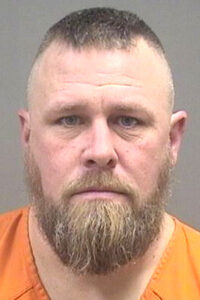Wrongful death settlement won’t be sealed
Judge rules against secrecy in case stemming from Realty explosion
YOUNGSTOWN — The terms of a wrongful death lawsuit related to the May 2024 Realty Tower explosion soon may be made public.
Mahoning County Probate Judge Robert Rusu issued the ruling Friday, declaring that attorneys for all parties in the case of the Estate of Akil Maurice Drake had failed to convince him that the documents should be sealed.
Drake, 27, of Youngstown, was working in the J.P. Morgan Chase Bank branch on the first floor of the Realty Tower in downtown Youngstown on May 28, 2024, when a natural gas explosion destroyed the building’s first floor and basement. Drake was killed, and several other people suffered serious injuries. The 13-story building was later demolished.
Drake’s family, including his mother and sister, sued YO Properties 47, the company that owns Realty Tower; LY Property Management, the company that managed it; Greenheart Properties of Boardman, the company that was relocating utilities in the basement of the Realty Tower just before the explosion; and several natural gas related companies such as Enbridge Gas Ohio and Enbridge Elephant Holdings.
The June 2024 lawsuit is still pending in Mahoning County Common Pleas Court with Visiting Judge W. Wyatt McKay presiding. The settlement involving Drake was announced in March, and Attorney Patrick McFarland, who represents Drake’s mother and sister and others, asked April 11 for the terms of the settlement to be sealed.
At a hearing Monday, Rusu told the parties that he had not made a decision and asked McFarland to explain why the records should be sealed. McFarland said Drake’s mother did not want the public to know how much money she would receive from the settlement. All of the attorneys representing the defendants in the case agreed with the motion to seal the records, albeit for their own reasons.
Rusu wrote in the Friday judgment entry, “After considering the factors in (Ohio law) and after hearing all of the legal arguments, the Court does not find that the parties met their burden of proof and did not exhibit by clear and convincing evidence that the presumption of allowing public access is outweighed by a higher interest.”
The court cited both a section of Ohio law called the rules of superintendence — specifically the section that refers to public access to legal documents — and the legal precedent established in State ex rel. WBNS TV Inc, v. Dues, a 2004 case with similar implications.
In State v. Dues, the Ohio Supreme Court found that judicial proceedings meet the definition of public records under the Public Records Act, and that that law leans heavily toward “broad access in disclosing probate settlement records.
The Ohio superintendence rules also state that “Any party to a judicial action or proceeding or other person who is the subject of information in a case document may, by written motion to the court, request that the court restrict public access to the information or, if necessary, the entire document.” The rule states the court also can make that determination on its own, as it deems necessary.
But the parties must meet a burden of proof, and Rusu did not believe they met that bar.
“Several times, the Court gave the parties the opportunity to provide the Court with factors as listed in (Rules of Superintendence) that support the restriction of public access in the instant case and the parties failed to do so and meet their burden of proof.”
Rusu therefore denied the motion to seal the records and gave the parties seven days to appeal the ruling. If the 7th District Court of Appeals in Youngstown does not grant a stay of Rusu’s order within seven days, the documents will be released to the public.
A hearing is scheduled July 17 to approve the settlement and distribution of the funds.



